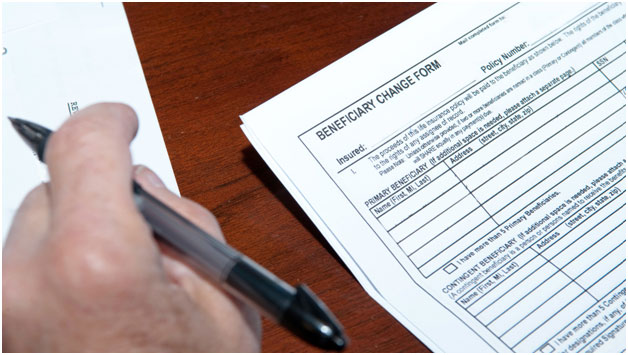In my world, there are two types of assets – those controlled by your will, and those controlled by beneficiary designations. Assets that are controlled by your will are called “probate” assets, because they pass according to your will with oversight from the court. Assets that are controlled by beneficiary designations are called “non-probate,” because it doesn’t matter what your will says, these accounts will pay out to the beneficiaries you designated.

Common non-probate assets that are controlled by beneficiary designations are life insurance and retirement assets. For those of us younger than retirement age, these are generally the two biggest sources of wealth that are available to be passed down to succeeding generations. Making sure the beneficiary designations are correct and up to date is an integral part of estate planning.
So, how do you choose a beneficiary?
First, it’s important to understand what your options are.
Sometimes there are restrictions on who you can name as beneficiary. It is important to know what they are so that you can plan accordingly. The rules you have to play by are specific to the policy or retirement plan, so step one is making sure you know your options.
Do you intend for your spouse to be a beneficiary?
Should you name your spouse as an outright beneficiary? The answer depends on whether you want to retain control of what happens to the remaining assets upon your spouse’s death, and whether asset protection is a consideration. If you are ok with the spouse inheriting the whole asset and then having him/her make decisions about what to do upon their death, then typically naming a spouse as primary beneficiary makes sense. However, if you’d like to retain control or if there are asset protection considerations, then sometimes naming a trust of which the spouse is beneficiary is a better option.
Do you intend for your adult children to be beneficiary?
The considerations about retaining control and asset protection also apply to children. However if you wish to name your adult children as beneficiaries, make sure you also make it clear as to what happens to a child’s share if that child predeceases you – does it go to their kids (your grandkids), or does it get split between the surviving children. These choices need to be clearly designated.
Do you intend for your minor children to be beneficiary?
DO NOT NAME YOUR MINOR CHILD AS A BENEFICIARY OF YOUR LIFE INSURANCE POLICY. In short, if you do designate a minor as a beneficiary of your life insurance policy, the court will get involved and appoint a guardian over those assets, and they will be paid out to your child when he or she is eighteen years old.
Life insurance policies are typically in the hundreds of thousands of dollars, and many would not want that kind of money in the hands of an eighteen year old. When it comes to retirement benefits and minor children, the determination is much trickier. There are times where a custodian of a minor child may be named outright as beneficiary, but there are other times when naming a trust is the better option. Determining the most appropriate option will be based on your specific situation.

So, how do you leave life insurance proceeds to care for your minor children you ask?
Typically, the best option is to develop some type of trust. Either a trust that is a part of your will (Testamentary Trust) or a stand-alone, revocable trust. Using a trust to accept life insurance proceeds allows you to make sure that they are used for the care of your child and that you control your child’s access to them beyond the age of eighteen.
Finally, naming your child’s chosen guardian as the beneficiary can also be a bad idea because there is no way for you to control their use of the funds.
Here are the last two things to consider when it comes to designating your beneficiary:
Make sure you designate a backup.
It’s always good to plan for contingencies. If your primary beneficiary predeceases you or for some reason doesn’t accept the asset, you want to make sure you retain control where the asset goes. If for some reason your account is left without a beneficiary named, the default is typically your estate.
Keep your designations up to date.
Remember that your beneficiary designation controls and that your will, will not override your beneficiary designation. For that reason, you want to make sure that you periodically review your designations. Did you name your mom as your beneficiary when you got your first job? If you’re now married with kids, you need to update your beneficiary designation. Did you get divorced since taking out your life insurance policy? Make sure that your ex spouse is no longer listed as a beneficiary.
